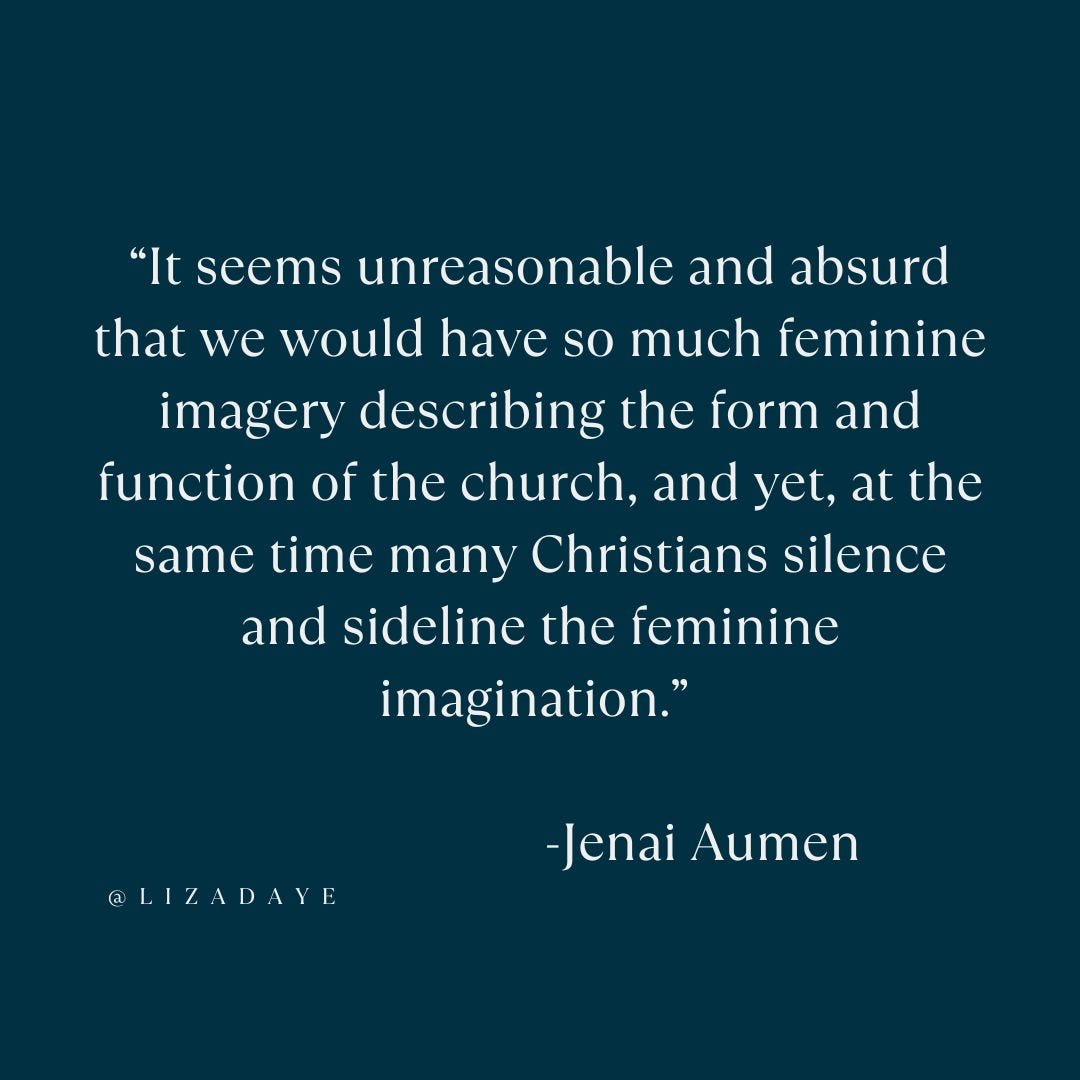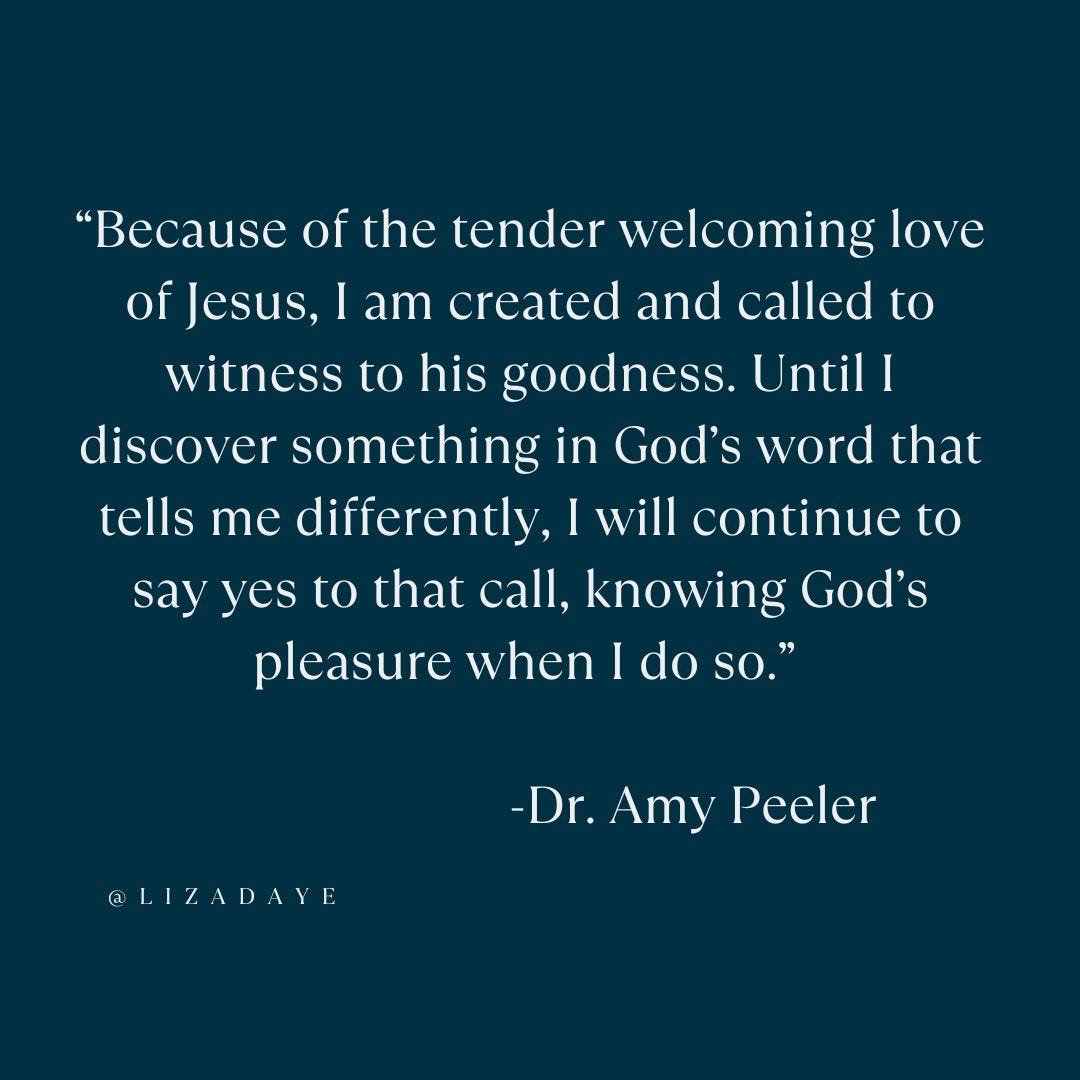You Can Sit with Us
While preparing to start seminary after a fifteen-year break from any kind of schooling, I wrestled with feelings of inadequacy and uncertainty resulting in many sleepless nights. What do I hope to accomplish here? Will I measure up? Where do I fit in? I knew that God called me to seminary, but I still didn’t know what exactly that entailed, or what it looked like. I found myself getting flustered over how to take notes and even how to organize my time. Basic things, really. But they felt so overwhelming. Expectant for any ounce of direction and a sense of grounding, I reached out to a few brilliant women in theology that I respected. I hoped for advice and yes, encouragement, because my brain simply wouldn’t stop swirling.
Instead, I received dismissively standoffish responses like, “Don’t feel bad if you need to quit” and “Yeah, the men behave horribly there. You could switch seminaries or quit? Most women can’t handle it.” But the undercurrent of all those interactions felt a bit like a scene from the movie Mean Girls. I felt like an oddball teenager in a packed lunchroom, nervously mustering up the courage to quell my quaking tray while asking if I could sit with the cool kids. But I didn’t even have to ask because I heard their unspoken message in the voice of Gretchen Weiner shrieked loud and clear: “You can’t sit with us!” Did I hear God right? Can I cut it? Do I really want to belong to this world?
My cerebral typhoon continued its stress-filled spinning until the voice of Jesus, along with some pretty incredible cheerleaders, calmed the storm.
Fortunately, my actual seminary experience surprised me in the best possible way. And the deeper I delved into academia, professors and peers from seminaries all over the country made space for me, affirmed my presence, and reminded me that I belonged. They valued my voice, helped me grow, and championed my unique gifts. Now, I approach graduation with my MACP (Master of Chaplaincy & Care Ministry) from Dallas Theological Seminary focused and determined to encourage more women into this world. I want to empower women like me from the get-go with the truth that they too belong in these spaces. I want to welcome them to the party with arms wide open. Because learning about the things of God and supporting one another in ministry should evoke a sense of joy and celebration.
Over the past several years a noticeable shift has taken place in seminaries. Where female students in mainline protestant and evangelical seminaries previously maintained a single digit minority prior to the turn of the century, in 2024, the male/female split in mainline protestant seminaries now hovers close to half, and women enrolled in the 10 biggest evangelical seminaries comprise about a quarter of the total enrollment. Of that 25 percent, married women represent roughly 53 percent, and 38 percent have children. At my own seminary women make up roughly 42 percent of the Dallas Theological Seminary student body, with the gender makeup of my degree program resting at near a 50/50 split between male and female students based off of internal data. The trend of women flocking to theological studies in record numbers shows no signs of slowing—hopefully, it will continue indefinitely.
The matriarchs who pioneered these spaces within the last 50 years served as our trailblazers. Current students of theology get to build on their legacy of making even more space for the voices of women to equip the saints. But unsurprisingly, as seminaries began admitting female students, we could describe the pushback against the mere thought regarding the presence of women in some theological spaces as nothing short of dramatic. In fact, many longtime professors of the bible and theology at DTS witnessed the dramatic behind-the-scenes conflict that allowing the first female students caused. Now they delight in sharing how things have changed as they teach classes filled with bright and talented women. :)
You see, the church passes down theology from one generation to the next. Positioning the voices of women to participate in the molding of theological cultures for future generations benefits the whole church. We can define theology as the ongoing timeless ecumenical global conversation about God, God’s works, and God’s ways. And the fact that we get to witness women contribute to that conversation in a markedly new way, and that we get to answer God’s call to ministry in record form should leave us giddy. We belong to a revival of women who hunger for sound doctrine, orthodox teaching, and the vibrancy of the Holy Spirit to permeate the discourse.
Welcome to the party!
According to Cassandra Speer, VP of Her True Worth and current MBTS student at Denver Seminary, “Welcoming women into the world of theology isn’t just about making room; it’s about recognizing an urgent need for their voices within the Body of Christ.” The way we view God affects how we view the world around us. The prophetic voices of women don’t just champion justice and shalom, they cultivate a much needed safe and maternal presence. While theological conversations about heated topics, like sexual assault, spiritual abuse, and racism, dominate the discourse, the contributions of women offer stability. And in the same way that the apostle Paul regularly invoked birthing imagery to emphasize his relationship to the churches that he loved dearly, based on passages like Romans 16, the kind of love that Paul referenced throughout the New Testament stemmed from love that he actually witnessed and experienced.
Paul took note of women in Galatia, Philippi, and all over the ancient world who loved the church fiercely. So fiercely in fact that equipping them, empowering them, and establishing them as leaders made indisputable sense. I’d like to think that Paul clearly felt comfortable regularly invoking that feminine imagery because the early church also embodied a good bit of feminine imagery. Notably Jesus himself also referenced feminine imagery in relation to the church. Of this pattern, Jenai Aumen, author of Othered and a Spiritual Formation student at Northeastern Seminary shared, “St. Cyprian once wrote: ‘No one can have God for his Father, who does not have the church for his mother.’” To her, “It seems unreasonable and absurd that we would have so much feminine imagery describing the form and function of the church, and yet, at the same time many Christians silence and sideline the feminine imagination.”
The imaginations and unique perspectives of women in theology don’t merely function as an added bonus, but rather, foundational wisdom. Cassandra takes that thought even further to suggest that “The perspectives and experiences of women in seminary are indispensable in shaping a fuller picture of God’s kingdom. This isn’t merely about inclusion; it’s about transformation.” Current students agree that while we need women seminarians, theologians, Bible teachers, and preachers, we also need a culture that not only accepts women but also champions, uplifts, and protects them as they step into these roles. As women charge forward with fervor, focused on the work at hand, the whole theological community bears responsibility for welcoming one another well.
Trailblazers Unite
Voices Like Dr. Amy Peeler, Author of Women & the Gender of God and professor at Wheaton, and Kaitlyn Schiess, Public Theologian and current Duke doctoral candidate take that responsibility seriously. Dr. Peeler, well-known for championing women in and out of her classrooms, and Kaitlyn in her role with the Evangelical Theological Society, regularly ask “Who else can we welcome?” When asked directly about welcoming women into theological spaces Dr. Peeler shared, “I would wager that women contemplating seminary will, at some point, feel unwelcome. It might come through something they read, a statement from a colleague, or the feeling that the professor doesn’t value your gifts as much as those of your brothers.” Yet because of the tender welcoming love of Jesus, Peeler shares in the same breath, “I am created and called to witness to his goodness. Until I discover something in God’s word that tells me differently, I will continue to say yes to that call, knowing God’s pleasure when I do so.” The feminine witness to God’s goodness never competes with, nor threatens, the work of our brothers in the faith. God desires for the whole church to work together to love one another and the world. God desires for the entire priesthood of all the saints to say yes to His call because a wealth of work awaits.
Kaitlyn puts it this way: “The church needs both men and women who are trained, equipped, and sent into ministry. Seminary is not the only place this happens, but it one of the important places it happens.” In the same way that academics need lay theologians to bridge theological divides, the whole church needs the wisdom of women in academic theology. She states, “For the sake of the flourishing of the church, we need to work to make seminaries places where women can learn, build relationships, and grow into more faithful ministers. The good news is that everyone involved in a seminary can play a role in this- male students can listen to and learn from women students, administrators can give women greater imaginations for what their future ministries might be, professors can encourage and affirm the gifts of women students. This doesn’t just make seminaries better places for women— it makes them better places for men too! Men and women need each other to learn more about God, so when seminaries are places where women can flourish, men flourish too.”
Because theology serves the whole church our job doesn’t just include studying theology diligently for ourselves and our small circles. The study of theology must include cultivating a culture that empowers the whole family of God to flourish by letting newcomers know “You belong here. There’s plenty of room and your voice matters so much.”
Are you curious about seminary, but unsure where to even begin?
Consider this an open invitation to the party.
You can sit with us.
____________
If your New Years resolution includes taking the next step towards seminary, we’re over here cheering you on. And if you have questions, we’re here to help, so feel free to keep the conversation below.










Can you be my cheerleader please? Every time I start to move in that direction, I chicken out. Hold me accountable ❤️
Yes! My seminary sisters are great. I couldn’t imagine a seminary experience with only men. The conversations and the study simply would not be as fruitful and life giving. Good article!